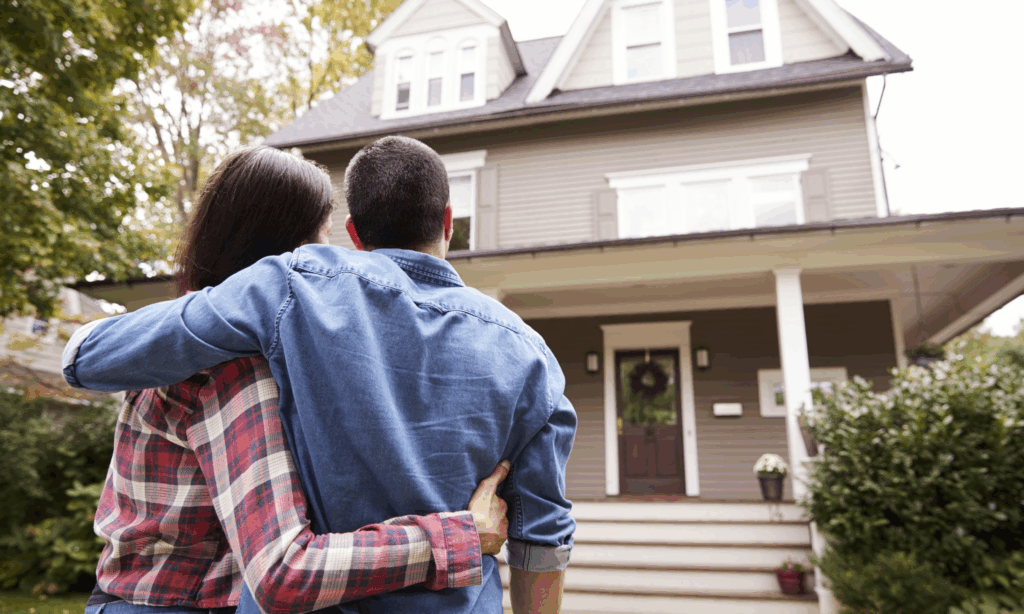Buying a home in New York City is an exciting milestone, especially for first-time buyers. However, it’s no secret that the housing market here is one of the most competitive and complex in the world. From sky-high prices to navigating co-op boards and understanding tax implications, purchasing a home in NYC comes with unique challenges. To help you get started, this guide will walk you through the essentials, focusing on practical advice and tips tailored specifically to NYC residents.
Deciding Whether to Buy
Before jumping into the home-buying process, it’s important to decide if buying a property in NYC aligns with your financial and lifestyle goals. Owning a home can provide stability, potential for equity growth, and freedom from rising rents. However, it can also involve significant upfront costs and long-term commitments.

Some questions to ask oneself are as follows:
How long do you plan to stay?
If you’re planning to live in NYC for at least five to seven years, buying could make more financial sense than renting, given the time it takes to recoup closing costs and build equity.
Are you ready for the extra responsibilities?
Owning a home means you’re responsible for maintenance, repairs, property taxes, and possibly homeowner’s association fees. If you prefer hassle-free living, renting might be a better choice for now.
Are you financially prepared?
Down payments, closing costs, and ongoing expenses add up quickly in NYC. If you’re unsure, consider using a rent vs. buy calculator to compare costs over time and help you make an informed decision.
Getting Your Financial House in Order
Buying a home requires planning and preparation, and your first task is to get your finances in top shape.
Boost Your Credit Score
Your credit score plays a major role in determining the mortgage interest rate you qualify for. Start by checking your credit report for errors and paying down any debt to improve your score. Ideally, your score should be above [700+] to secure favorable financing terms.
Save for a Down Payment
While many homes in the U.S. require a 20% down payment, NYC offers options for first-time buyers. Condos, for instance, may allow down payments as low as 10%, while co-ops usually require a minimum of 20% (sometimes higher). On a typical NYC apartment costing [$800,000], this means needing at least [$80,000 to
$160,000]. Don’t forget to account for closing costs, which can range from 2% to 6% of the purchase price. These costs often include attorney fees, appraisal fees, and transfer taxes, which can be significant in NYC.

Get Pre-Approved for a Mortgage
A mortgage pre-approval letter shows sellers you’re a serious buyer and helps you understand your budget. Work with a lender experienced in the NYC market to ensure they take into account variables like co-op board requirements and high tax rates.
Build an Emergency Fund
Unexpected expenses can arise when you least expect them, especially as a new homeowner. NYC experts suggest setting aside three to six months’ worth of expenses as a financial cushion.
What Can You Afford to Buy?
New York City real estate is unlike any other market. It’s essential to determine not just what you want, but what you can realistically afford.
Factoring in Monthly Costs
Besides the mortgage payment, you’ll need to budget for property taxes, homeowners insurance, and, in NYC, often significant maintenance or common charges. For example, co-op owners typically pay maintenance fees, which cover building upkeep, staff salaries, and property taxes. Condo owners pay monthly common charges along with their taxes. On average, maintenance or common charges can range from [$1,000 to $2,500+] depending on the property.
Use the “28/36 rule”: Lenders generally recommend that no more than 28% of your gross monthly income goes to your housing costs, and no more than 36% covers total debt.
Understanding Property Types
NYC offers a variety of property options, each with its considerations:
Co-ops: These represent the majority of NYC’s housing stock. Buying a co-op means purchasing shares in a corporation, and you’ll need board approval, which can be stringent and invasive.
Condos: These tend to be more expensive but provide greater flexibility in ownership. They’re ideal for buyers who want to rent out their property later.
Townhouses/Brownstones: These are perfect for those seeking privacy and outdoor space, but they come with higher maintenance costs and responsibilities.
New Developments: Often sleek and modern, these properties can involve additional costs like transfer taxes if the seller is passing those on to the buyer.
Explore First-Time Buyer Programs
First-time buyers in NYC may qualify for assistance programs, such as down payment assistance or tax incentives. Check with state and local programs for updated offerings.

Why Home Prices Rise & Fall
NYC’s housing market is dynamic and influenced by a variety of factors, understanding which can help you make smarter decisions.
Supply vs. Demand: NYC’s limited land and high demand create upward pressure on prices, especially in desirable neighborhoods like Manhattan and parts of Brooklyn. However, when supply increases—say, due to new developments—prices may stabilize or drop.
Interest Rates: When mortgage rates are low, more buyers enter the market, often driving up home prices. Conversely, rising rates can cool demand.
Economic Trends: NYC’s housing market is tied to the broader economy. Booms in job creation can increase housing demand, while economic downturns may lead to price drops.
Neighborhood Popularity: Properties in gentrifying areas, such as parts of Queens or the Bronx, may see faster appreciation over time as more people move in and invest in these neighborhoods.
Global Buyers: NYC is a hub for international investors. Changes in global economies can influence high-end property prices. By understanding these factors, first-time buyers can better time their purchase and
recognize where opportunities might lie. Buying your first home in NYC is no small feat, but with careful planning and informed decisions, it’s achievable.
By understanding these factors, first-time buyers can better time their purchase and recognize where opportunities might lie.
Buying your first home in NYC is no small feat, but with careful planning and informed decisions, it’s achievable. From organizing your finances to navigating co-op boards and understanding market dynamics, the more prepared you are, the smoother your home-buying experience will be. Remember, NYC real estate can be
complex, so don’t hesitate to work with seasoned professionals—whether real estate agents, attorneys, or lenders to guide you through the process. Your dream of owning a home in the city that never sleeps might be closer than you think! Your detailed guide for first-time NYC home buyers is ready! Let me know if there’s
anything else you’d like to refine or expand upon.



